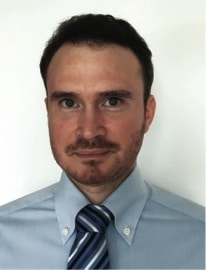Biography
Francesco Ferranti received the Ph.D. degree in Electrical Engineering from Ghent University, Ghent, Belgium, in 2011. He is currently an Associate Professor at the Faculty of Engineering of the Vrije Universiteit Brussel (VUB). He is also an Adjunct Professor at the Indian Institute of Technology (IIT) Madras, Chennai, India and an Adjunct Professor at Carleton University, Ottawa, Canada.
He is an IEEE Senior Member. He was the recipient of the Anile-ECMI Prize for Mathematics in Industry 2012 and the Electromagnetic Compatibility Society President’s Memorial Award 2012. He was the Program Chair of the IEEE Workshop on Signal and Power Integrity (SPI) 2014 and the Secretary of the International Workshop on Integrated Nonlinear Microwave and Millimetre-wave Circuits (INMMIC) 2014. He has been a member of the Technical Program Committees of the IEEE Workshop on Signal and Power Integrity (SPI) and the IEEE International Conference on Numerical Electromagnetic and Multiphysics Modeling and Optimization (NEMO), and of the Paper Review Committee of the IEEE Conference on Electrical Performance of Electronic Packages and Systems (EPEPS). He is a Member of the Technical Committee on Design Automation (MTT-2) of the IEEE Microwave Theory and Techniques (MTT) Society.
His current research interests include machine learning, surrogate modeling, model order reduction, sampling techniques, design space exploration, uncertainty quantification, optimization, applied electromagnetics, behavioral modeling, microwave design and characterization, fault diagnosis in arrays of antennas, nanophotonic and optical design, photonic integrated circuits, and smart contact lenses. He has authored or co-authored more than 120 papers in peer-reviewed journals and conferences, and 3 book chapters. He serves as a regular reviewer for several international journals and conferences.
Presentations
Advanced Data-Driven Modeling Techniques for Microwave and Photonic Design
Electromagnetic solvers are of paramount importance to simulate the behavior of complex microwave and photonic devices and systems, which have many applications in domains as communication, sensing, imaging and computing. However, EM solvers can result very computationally expensive. In a design flow it is needed to carry out design tasks such as optimization and variability analysis, and therefore a high number of EM simulations can be required. The direct use of EM solvers into a design flow then can easily become unfeasible. Advanced data-driven modeling techniques have been proposed for the modeling and design of microwave and photonic devices and systems. Many of these techniques belong to the domain of supervised machine learning. These modeling techniques can be used to tremendously speed-up the design flow while retaining high accuracy in the obtained results. Multiple applications will be presented where different data-driven modeling techniques are used for passive and active devices and can be tailored towards optimization and variability analysis. The importance of data collection will be highlighted, since it is a very important aspect related to the model accuracy and computational cost of the model training and validation.
